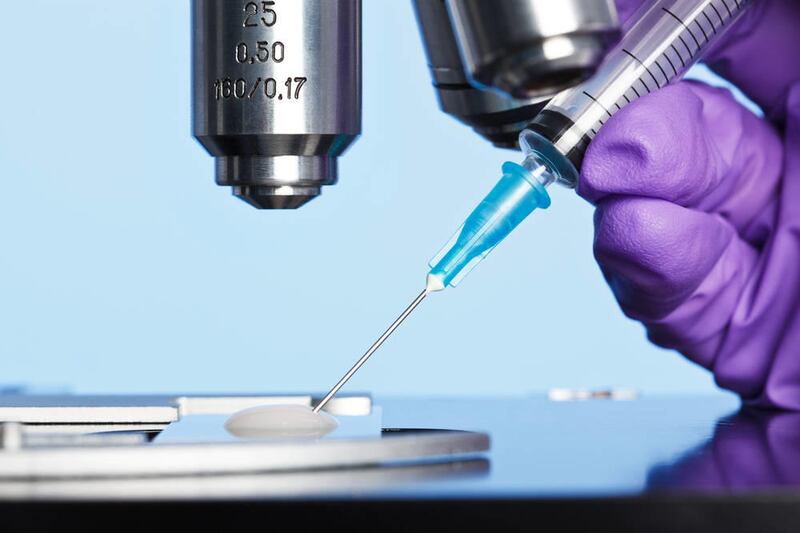In an attempt to outlaw abortion, legislation pending in North Dakota grants legal rights to embryos, a move that could have a "devastating impact" on fertility treatment in the state, particularly in-vitro fertilization, according to health professionals.
The North Dakota Medical Association and several Fargo doctors have come out in opposition to the bills, which would grant full U.S. citizen rights to fertilized embryos.
"This bill will make it impossible to provide some types of IVF to couples who desperately want to have a baby," said Stephanie Dahl, a reproductive endocrinologist from Fargo, in a statement from the North Dakota Coalition for Privacy in Health Care.
SB2303 legally defines a person at every stage of development, and SCR4009 requires protection of life at any stage, with no exceptions to allow abortions for victims of rape or incest or to save the life of the mother.
In a statement on its website, Resolve, the national infertility organization, explains how such "personhood" legislation threatens fertility treatment.
"If microscopic fertilized eggs/embryos are full humans, anything that puts an embryo at risk could be a criminal violation, even if its goal is the undeniable social good of helping someone have a baby," said the statement. "The effect of Personhood Legislation would be to threaten a medical treatment that has, since being pioneered in 1978, brought some four million babies to loving infertile couples around the world."
In the IVF procedure, multiple eggs are fertilized in a lab, develop for three to five days, and then one or more are transferred to the woman's uterus. With "personhood" legislation, however, North Dakota's IVF clinic would have to close.
If either of the bills pass, those seeking IVF in North Dakota would have to travel to South Dakota or Minneapolis. According to the Centers for Disease Control and Prevention, infertility affects about 10 percent of couples who desire preganancy.
The legislation would also affect a doctor's treatment of complications during pregnancy. “Health care providers will be confused by this law and they will fear litigation,” said Dr. Siri Fiebiger, an ob-gyn from Fargo, in a statement from the North Dakota Coalition for Privacy in Health Care. “It is impossible to legislate for every medical scenario. Ectopic pregnancies and miscarriages can be life-threatening if not treated in a timely fashion.”
The two "personhood" bills, SB2303 and Senate Concurrent Resolution 4009, have passed in the state Senate and await action by the House. Similar legislation has failed in Colorado and Mississippi, and the Oklahoma Supreme Court struck down a proposed personhood amendment last year.
EMAIL: kbennion@deseretnews.com

